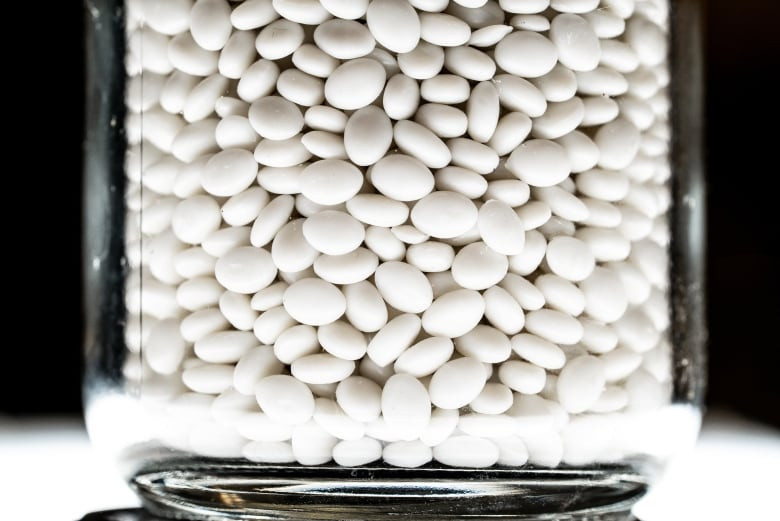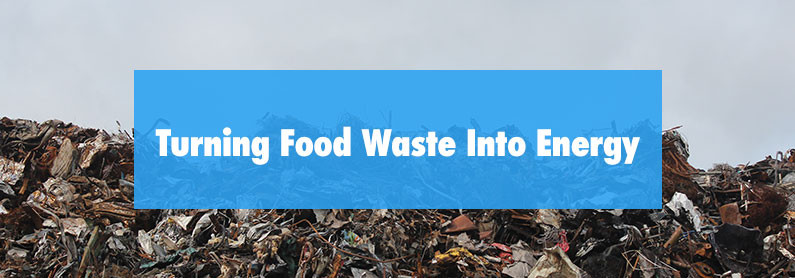Extraordinary amounts of energy, water, and capital are put into food systems throughout the world – and far too much of that is wasted. In Canada, for example, approximately 58 per cent of the food we produce ends up in landfills, which is even higher than the global rate – including the U.S. – where an estimated one-third of all of the food that’s produced ends up in landfills.
All of which begs the question: What if there was a way to convert this wasted food into something that people can use every day?
Turning Food Waste into Bioplastic
The project tackles the challenge of oceanic plastic pollution, which is becoming increasingly prevalent. Microplastics, defined as plastic debris that are less than five millimeters in length (or about the size of a pencil eraser), result from both commercial product development and the breakdown of larger plastics. These microplastics are estimated by agencies such as the World Wildlife Fund to affect nearly 88 per cent of all marine species, which inadvertently swallow the tiny particles.
Because they can quickly biodegrade in seawater, the Virginia Tech bioplastics have the potential to reduce the effect of pollution on marine life across the globe. “By creating cost-effective bioplastics that naturally decompose, we can reduce plastic pollution on land and in oceans and address significant issues such as greenhouse gas emissions and economic losses associated with food waste,” said lead researcher Zhiwu “Drew” Wang, associate professor in the Department of Biological Systems Engineering and director of the Center for Applied Water Research and Innovation.
A Modular Bioprocessing System
The pilot project is developing and demonstrating an affordable modular bioprocessing system to produce biodegradable bioplastics from food waste. The process, akin to fermentation in microbreweries, ensures that the produced bioplastics can be easily composted, mitigating marine pollution caused by microplastics. The project aims to demonstrate the feasibility and scalability of this bioprocessing system on both national and global levels. “By creating environmentally sustainable plastics, we hope to benefit people, companies, waste management systems, and communities worldwide,” Wang said.
Harnessing Microorganisms
Researchers will harness microorganisms to convert food waste into fats, which are then processed into bioplastics. This process involves purifying polyhydroxyalkanoates (PHAs) and creating high-value bioplastic products. “While there are many ways to generally improve sustainability in the world, there are two primary methods right now – one is to use more recycling and recyclable material, and the other way is to use biodegradable material,” Kim said. “Using bioplastic is a viable option to solve our increased plastic pollution. Our approach is to improve the sustainability using the biodegradable option.”
Replacing Traditional Packaging
These biodegradable products include home compostable packaging, which has become increasingly popular. “Our first step is to make single-layer film to see if it can be utilized as an actual product,” said Chen Shin, a research team member and senior student in Virginia Tech’s packaging and system design program. “If it has good oxygen and water vapour barriers and other properties, we can move to the next step. We aim to replace traditional coated paper products with PHA. Current paper products are often coated with polyethylene or polylactic acid – also known as PLA – which are not fully degradable. PHA is fully biodegradable in nature, even in a backyard environment.” Polyethylene or PLA coatings are often found on single-use plastics, which can include disposable coffee mugs, films covering food, or even the ice cream cups enjoyed on a hot summer day.
A Sustainable Future
A $2.4-million grant from the U.S. Department of Agriculture is funding this applied research. The project holds great promise for a more sustainable future, addressing several critical challenges simultaneously: reducing plastic pollution, minimizing greenhouse gas emissions, and finding innovative ways to utilize food waste. This groundbreaking research from Virginia Tech could pave the way for a world where discarded food is transformed into a valuable resource, contributing to a cleaner environment and a healthier planet for all.


















